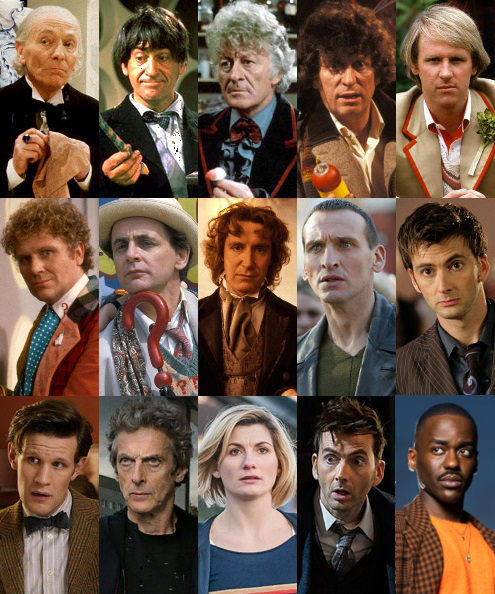The Doctor (as he is always called; the show is too modern to use surnames) is an alien who is exactly like humans in every way except he can reincarnate without having to come back as a bug. "Time Lords" are lords of time that suck at controlling it, since they all died out except for the Doctor, which leaves a lot of questions about the intelligence of the race.
Any species which thought these hair styles a good idea couldn't have been on the right side of natural selection
The main villains in Doctor Who are cyborg woodchucks who threaten to eat the TARDIS, the Doctor's flying phone booth time machine. "Phone booths" were strange little buildings where people cloistered themselves to use cellphones that where tied to the ground. They were in fact used for this purpose before ever being drafted into service as time machines for wandering humanoid aliens.
The Doctor's primary weapon of defense is a screwdriver modified to do everything with no explanations or limitations. Little known to most fans, however, is that the Doctor originally wielded devices such as a Radical Wrench, a Japanese Jigsaw, a Dampened Drainplug, and a Wholesome Hammer.
The Doctor's primary weapon of defense is a screwdriver modified to do everything with no explanations or limitations. Little known to most fans, however, is that the Doctor originally wielded devices such as a Radical Wrench, a Japanese Jigsaw, a Dampened Drainplug, and a Wholesome Hammer.
"Pass me the Japanese Jigsaw, Miss Anna Beth Tyler-Moore-Smith! The universe depends upon it."
- Early Doctor Who Quote
Every Doctor Who plot arch ever: The doctor acts like a 12-year-old and destroys the lives of all his companions. For someone as old as he is, he gets shown up by a lot of girls in their early 20s. Girls whose lives he shatters in revenge.
The Doctor isn't finished with his friends until he can leave them in convulsing grief or death
But the main problem with Doctor Who isn't the corny monsters, suspensions of logic, or hyperactive exposition. It's the gap between the show's quality and its fans' fanatical devotion. Firefly, anyone?


